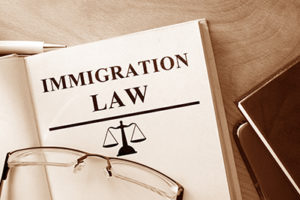Sex, love and financial issues usually top the concerns of couples planning a baby but for those who turn to international surrogacy after years of trying to conceive, the focus quickly switches to legal problems.
Even so, it is usually only months into the process that the unglamorous topic of immigration and nationality law rears its head, often causing heart-breaking delays, frustration and additional costs for couples whose babies have been born abroad via international surrogacy.
Couples who consult me on the best way to bring their babies back to the UK are often taken aback by the variety of information I need from them before I can answer their questions, as the solution is rarely straightforward.
In short, there are three main routes open to intended parents:-
Route 1: Apply directly for British passport
This is only an option where the surrogate mother is unmarried, the intended father is British and the intended father is genetically related to the child. Among other requirements, the legal connection between father and child must be documented, and an approved DNA provider must show the genetic link.
Route 2: Apply for the baby to be registered as British and then apply for a British passport
This is a two-stage process and is probably the most common route for British parents. It is usually an option either (i) where the surrogate mother is unmarried and the intended mother is British with a genetic connection to the child, or (ii) where the surrogate mother is married, one of intended parents is genetically related to the child and that parent is British.
The registration application is a discretionary one, meaning it is up to the Home Office whether they choose to approve it or not. Among other things, the intended parents will need to demonstrate the genetic link and show that a parental order is likely to be granted to have the baby registered as British.
Once the baby has a Registration Certificate, the intended parents can apply for a British passport for the baby.

Route 3: Apply for a non-British passport for the baby and then apply for a visa for the baby to come to the UK
If couples do not fall into any of the above categories, they are likely to be looking at this route. It is most common in situations where the parents are living in the UK but are not British, or in cases where neither intended parent has a connection to the child. It is particularly important to bear in mind that if the baby cannot obtain a passport from its birth country or another country, then it won’t be able to apply for a visa or travel.
There are a variety of different visa routes that may be open to the baby, and the exact one will depend on the family’s circumstances. In some cases, the family may be able to apply for the baby to be registered as British once it is in the UK and a parental order has been granted.
The above three routes provide a very generalised summary only of the routes available but the exact steps parents need to take will depend on their particular circumstances.
It is also extremely important to bear in mind that the laws and practice on international surrogacy and immigration change constantly. This means that intended couples have to be very careful in searching for answers online, as advice from a family in identical circumstances who brought a baby back to the UK a year previously may now be completely outdated.
By way of example, the Home Office’s own guidance on international surrogacy and UK visas, ‘Inter-Country Surrogacy and the Immigration Rules’, is in fact several years out of date. It has not yet been replaced and still contains a lot of useful information but it should only be consulted with caution.
Our advice to couples considering surrogacy would be to do your research very carefully. Clinics abroad will often downplay the difficulties of bringing baby home and it is very tempting to listen to what they say – especially when they are promising you your heart’s desire!
That said, in our experience, it is nearly always possible to bring your baby back to the UK one way or another. However, the price for couples who are not properly informed is usually several unnecessary extra months abroad, with all the additional emotional and financial costs this entails.
Karma Hickman is an Associate Solicitor in our Immigration team.
If you are considering using a surrogate abroad and would like advice on how to bring your baby back to the UK, please do not hesitate to get in contact with a member of our Immigration team on 020 7631 4141.




